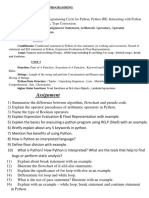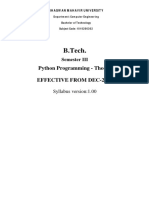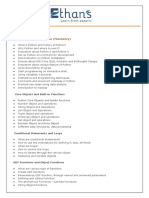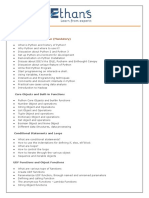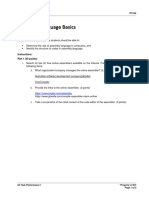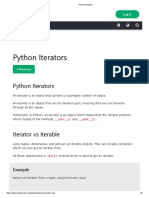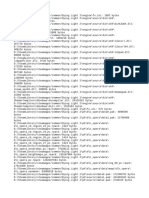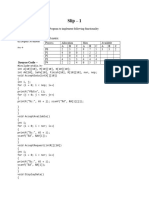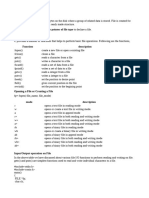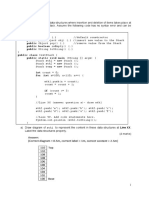0% found this document useful (0 votes)
24 views5 pagesPython Szllabus
The document outlines a comprehensive syllabus for a Python for Beginners course, covering essential topics such as setup, basic syntax, control flow, data structures, functions, input/output, error handling, modules, and object-oriented programming. It also includes practical applications and project ideas to encourage further learning. The course is designed to provide foundational knowledge for various applications of Python, including web development, data science, and automation.
Uploaded by
mub.bijoyCopyright
© © All Rights Reserved
We take content rights seriously. If you suspect this is your content, claim it here.
Available Formats
Download as DOCX, PDF, TXT or read online on Scribd
0% found this document useful (0 votes)
24 views5 pagesPython Szllabus
The document outlines a comprehensive syllabus for a Python for Beginners course, covering essential topics such as setup, basic syntax, control flow, data structures, functions, input/output, error handling, modules, and object-oriented programming. It also includes practical applications and project ideas to encourage further learning. The course is designed to provide foundational knowledge for various applications of Python, including web development, data science, and automation.
Uploaded by
mub.bijoyCopyright
© © All Rights Reserved
We take content rights seriously. If you suspect this is your content, claim it here.
Available Formats
Download as DOCX, PDF, TXT or read online on Scribd
/ 5





































